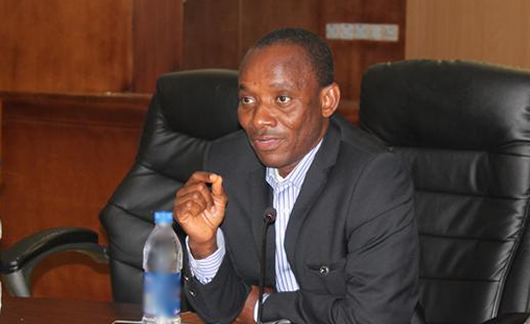Sam Amadi, is a former chairman of the Nigerian Electricity Regulatory Commission (NERC), and currently lectures at the Baze University. In this chance interview with HARRISON EDEH, Amadi spoke on the lessons Nigeria could learn from the COVID-19 pandemic in order to build a resilient and healthier economy. Excerpts:
Could you kindly speak to us on how the coronavirus is already adjusting the global economy and what lessons Nigeria could learn with regard to having a productive economy?
The world will survive the coronavirus but with great or less casualties; but it will hardly survive the economic effects of the virus. The figures are not yet in but we will witness severe recession that some people estimate could be to the degree of the 1930s global crisis. The world economy will receive a major hit as commercial and industrial activities shrink. Unemployment is already a problem but will get worse as businesses struggle to survive. Countries will inject their economies with stimulus but these will not be enough to get the global economy to pre-COVID19 status. The lessons for Nigeria is to realise that we have to build an economy that has buffers and only an innovative economy can withstand the degree of risks and vulnerability expected of a globalised economy that is unbalanced.
Nigeria is practically down economically with a plummeting oil price. Oil remains the mainstay of our economy; how do we get out of this mess and have an economy that has an identity and not absolutely dependent on the volatility of the oil market?
We can’t solve our economic crisis of over-dependence on oil through usual economic policy making. The crisis is rooted in the legal and institutional framework of the economy. That’s the sense of restructuring. Our political economy is rent-seeking. It creates a perverse incentive to develop a productive economy based on brain power. We are a single commodity economy and as long as it remains more attractive to political elite to share rent, then you will not have enough incentive to move to a productive economy. Nigerians are talented and we have significant brain power to become an industrial and innovative medium level economy.
Our salvation lies in de-emphasising oil economy and its freezing impact on creativity and innovation. We have to abandon the rentier economy that is serviced by oil and move to a productive economy built on innovation and enterprise.
What model of an economy would you suggest for the Nigerian government to adopt and grow now since our lip service to diversification has failed us overtime?
Nigeria has been yoked to the neoliberal model and needs to unyoke itself to become a productive economy. We missed the road when we abandoned industrial policy because of the failures of the post-colonial planned economy. We allowed the market forces to determine our economy and today we are worse than we were during the days of neocolonialism because our economy is basically an appendage of western economy.
Government still pays a lot of subsidy despite scarce resources; not just the fuel subsidy, virtually in various sectors including power, oil, among others. These are no longer sustainable; how do you think we could make headway since Nigerians’ taste buds are already used to these subsidy?
We need to act like the Asian countries and embrace developmental state that strategically engages the market to create industrial capacity. We are at the right spot to leverage new technology to deepen capability for a real economy. We have been sold the falsehood of economic development based on financialisation. So, most of our billionaires are bankers and traders not manufacturers. We need to build solid economy.
So, how do we address concerns of subsidy that we can’t sustain?
I think we may not run away from subsidies in the short to medium terms especially in the light of COVID-19. But we need to review who captures these subsidies and for what purpose. This will show that most of these subsidies are mere ripoff by the well-off. So, we may need to remove some of these subsidies and target better those that will benefit from the subsidy. Subsidy should be rarely allowed and allowed only when it benefits only the worse off.
Source:Businessday.ng




